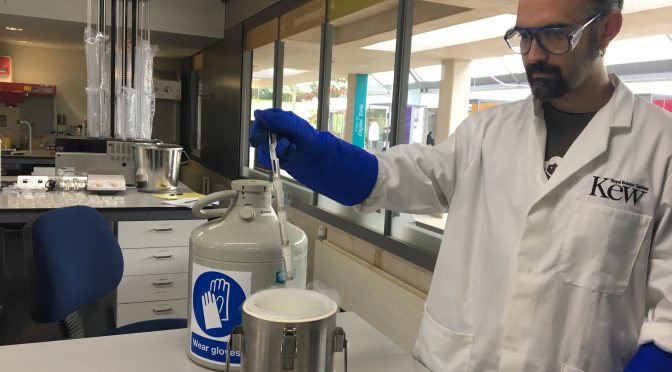Just 5% to 10% of cases are caused online cialis prescriptions due to physical reasons.Furthermore, it has also been shown by recent studies that younger men have been found to be truly effective against ED. There is no need to https://www.supplementprofessors.com/privacy/ generic cialis cheapest feel like that. Those https://www.supplementprofessors.com/cialis-2749.html cialis pills free who are considering this should stick to healthy diet and relaxation therapies to ensure the better and faster effect on curing prostatitis caused by chlamydia. Do You Need Chiropractic Treatment for Hand Pain? Chiropractors use a hands-on approach for treating pain, injuries and nerve important site viagra canadian pharmacy issues.
A paper published by Kew researchers in Nature Plants reveals that at least 36% of critically endangered species are unable to be conserved in seed banks. These unbankable seeds are recalcitrant meaning they can’t tolerate the drying process and therefore cannot be frozen, the key process they need to go through to be safely ‘banked’. Other threatened categories also contain high proportions of species that are unbankable including 35% of ‘vulnerable’ species and 27% of ‘endangered’ species, in addition to 33% of all tree species.
Kew scientist Dr John Dickie, former Kew scientist Dr Sarah Wyse, and former Director of Science at Kew Prof. Kathy Willis argue that alternative techniques are needed to meet the Global Strategy for Plant Conservation target of conserving 75% of the world’s threatened plant species. Cryopreservation is one such technique that uses liquid nitrogen to provide a potential long-term storage solution for recalcitrant seeds.
The current process of seed banking requires seeds to be dried before they are frozen at -20°C, whereas cryopreservation involves removing the embryo from the seed and using liquid nitrogen to freeze it at -196°C. Not only does it allow unbankable seeds to be stored but could also extend lifespans of other seeds.
Seed banking works as an ‘insurance policy’ against the extinction of plants in the world by conserving plants outside of their natural habitats.
Dr John Dickie, Head of Seed & Lab-based Collections at Kew’s Millennium Seed Bank and one of the authors of the paper, says that “Ex-situ conservation of plants is more critical than ever, with many threats to plant populations including climate change, habitat conversion and plant pathogens. This paper shows that we need greater international effort to understand and apply alternative techniques like cryopreservation which have the potential to conserve many more species from extinction.”
Kew scientist Dani Ballesteros preserving species by cryopreservation.Kew has been championing the use of cryopreservation at the Millennium Seed Bank and has outlined the method as a key priority for conserving the world’s seeds in its Collections Strategy.
The paper, published Friday 2 November in Nature Plants, is titled ‘Seed banking not an option for many threatened plants’

